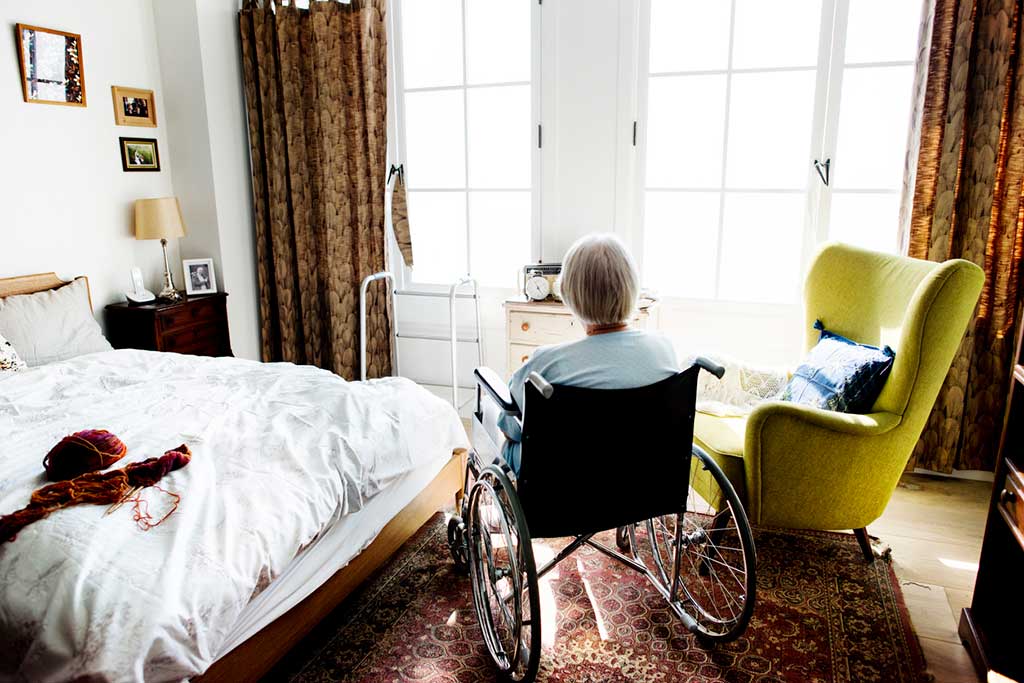Early Warning Signs of Nursing Home Abuse
Nursing home abuse is an ongoing problem in the State of Florida. If you have a loved one in a nursing home, you should be aware of the early warning signs of nursing home abuse. The signs of nursing home abuse can be subtle, but if you know what to look for, you can recognize abuse and stop it in its tracks. Here are the early warning signs of nursing home abuse.
Early Warning Signs of Nursing Home Abuse
The early warning signs of nursing home abuse are changes in your loved one’s care, their mood or their behavior. If there’s a change in your loved one, even slight, it can be a warning sign of abuse. If there are things that seem unusual or events that don’t quite make sense, it may be time to follow up and investigate whether the cause of the problem is abuse. Here are some of the changes and warning signs that may indicate abuse:
1. Changes in mood
Does your loved one seem more easily upset than they used to be? Are they moody or suddenly more aggressive? Any change in your loved one’s mood, whether positive or negative, may be a sign of abuse. If your loved one is more angry, rude or unkind than they used to be, there may be an underlying cause like elder abuse. If you notice changes in your loved one’s mood, it’s time to ask more questions and determine if elder abuse is ongoing.
2. Increase in anxiety
Elder abuse can cause a victim significant stress and anxiety. If you notice that your loved one is more anxious than usual, elder abuse may be to blame. Stress and anxiety may show in many ways. If your loved one is hesitant to do things that they used to enjoy, or they don’t want to be left alone, it can be a sign that something is wrong.
3. Unwillingness or inability to answer questions
Many elder abuse victims are afraid to report abuse. They may try to protect their abusers out of a fear of retaliation or because they’re trying to minimize what’s happening to them. If your loved one is unable or unwilling to answer questions about their living situation and their care, there may be a problem. Your loved one should be able to share information with you without hesitation and without fear of how their caregivers are going to react.
4. Lack of access to financial records
Financial abuse is one form of elder abuse. Too often, family members and third parties alike try to gain control of the finances of an elder to exploit them. One of the ways that a predator gets away with financial abuse is by cutting others off from access to financial records. If the person who controls the finances won’t let your loved one view the records or won’t discuss them with you, it can be a sign that they’re being exploited.
5. Limitations on visits from family and friends
One of the key ways that abusers get away with harming the elderly is through isolation. Abusers don’t want others to know what’s going on, so they cut the senior off from their loved ones. When rules for visits from family and friends suddenly change, it can be a sign of elder abuse. A person who lives in a nursing home has the right to visits from family and friends. When you’re not allowed to visit, or if you’re given excuses and the run around when you try to visit, you may need to investigate elder abuse.
6. Restrictions on movement within a facility
A senior in a nursing home has the right to be mobile. They have the right to move throughout the facility and interact with other residents to the extent that they are able. A nursing home facility should not restrict residents to their rooms. They should provide walkers and wheelchairs as they need to allow residents to be as mobile as possible. When residents are not free to move around the facility, the restrictions may be nursing home abuse.
7. Sudden depletion of funds
Along with failing to provide access to finances, a sudden depletion of funds can be nursing home abuse. A person who controls finances on behalf of a senior has an obligation to act in the best interests of the senior. If there are rapid changes to a senior’s finances including depletion of money, there may be a problem.
8. Unexplained injuries
If your loved one suffers an injury and you don’t receive a clear explanation of how the injury occurs, your loved one may be the victim of elder abuse. When caregivers have excuses or deflections to explain injuries, the truth may be that your loved one is the victim of abuse. If your loved one suffers a physical injury, their care providers should have a straightforward and reasonable explanation of how it occurred. If the injury could have been prevented or if the injury is inflicted intentionally, your loved one may be the victim of abuse.
9. Changes in physical health
Not all forms of nursing home abuse leave physical scars. If you notice changes in your loved one’s physical health, you should investigate to determine if nursing home abuse is the culprit. Physical changes that may indicate nursing home abuse may include the inability to sleep, dehydration, changes in appetite, rapid weight loss or weight gain, heavy medication, and other adverse physical health changes.
10. Poor personal hygiene
Nursing home neglect may manifest itself as negative changes to your loved one’s personal hygiene. If you see unsanitary living conditions, soiled clothes or if you notice that your loved one isn’t bathing regularly, their poor hygiene may be a sign of nursing home abuse or neglect. Your loved one’s caregivers may not be tending to their personal hygiene, or your loved one may be distracted from their own personal hygiene routine because of abuse.
Our Nursing Home Abuse and Neglect Attorneys in Miami
Are you concerned about the care that your loved one is getting in a nursing home? The skilled team of Miami nursing home abuse lawyers at Bernstein & Maryanoff can help. Contact us today for a free and confidential discussion of your case with one of our team members. We can help you evaluate your loved one’s situation. It’s our goal to help you determine how you can protect your loved one and exercise their rights as a nursing home resident. Call us today to begin.
About the Author

Jack G. Bernstein, ESQ.
Jack Bernstein is a hard-working and highly motivated personal injury attorney in Miami, Florida with over three decades of experience. He is a strategist and idea person, with a genuine passion for helping his firm’s clients. If you’ve been injured, contact Jack Bernstein today for a free evaluation of your case.

